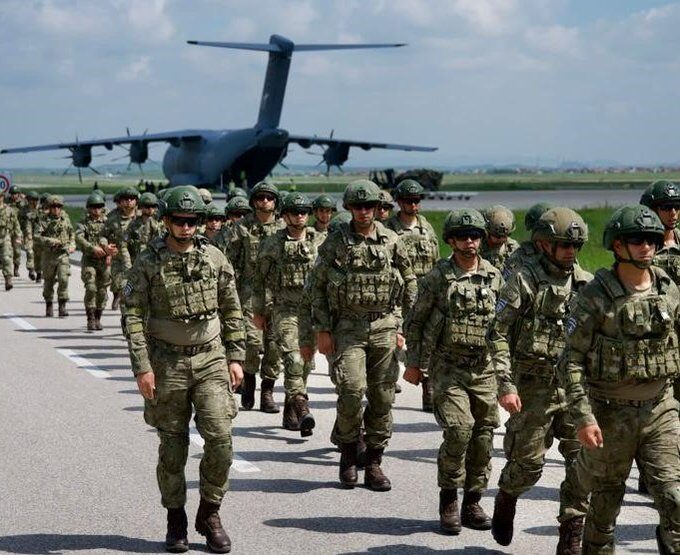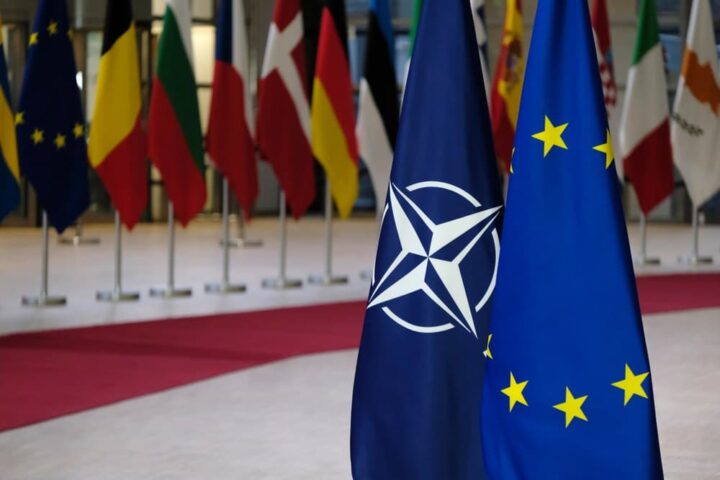As the date of the NATO summit (July 11) in Vilnius approaches, the question of Sweden’s accession to the alliance is gaining currency because of Turkey’s opposition.
On May 16, 2022, the government of Sweden decided to apply for NATO membership, and on July 5, 2022, all NATO countries signed the Accession Protocol for Sweden.
Until all NATO countries have ratified Sweden’s application, it has the status of ‘invitee country’, which entails that Article 5 of the Treaty only applies to the defence of allies.
It is, therefore, clear that questions are raised about how Sweden can best guarantee its national security, as the war in Ukraine gives rise to a structural, long-term, and significant deterioration of the security environment in Europe and beyond.
Due to the lack of political will among EU states to develop collective defence within the bloc, long-standing security policy positions have been revised in several European countries in response to the war.
The Reichstag approved Sweden’s accession to NATO on March 22, 2023, without discontinuing to deepen Sweden’s defence and security cooperation with the Nordic countries and other partner countries with engagement in the Baltic Sea region.
For political and other considerations, Turkey is blocking Sweden’s accession to NATO.
Ankara claims that Sweden allows members of terror groups, particularly the PKK, to operate in Sweden.
As a matter of fact, Sweden, by signing in Madrid on June 28, 2022, the Trilateral Memorandum, accepted the responsibility not to provide support to YPG/PYD and the organisation described as FETO in Turkey, confirming that the PKK is a prescribed terrorist organisation, preventing, therefore, activities of the PKK and all other terrorist organisations.
Sweden, honouring its commitment, has changed the terrorism laws, making it a crime to be part of these organisations.
However, it is still unclear if this is enough for Turkey.
Those optimistic that a deal can be reached before July 11 must realise that a price is attached.
The price is that Turkey wants the US Congress to approve its purchase of F-16 fighter jets, which US officials are reluctant to tie to the Swedish issue.
More recently, President Erdogan has put forward another bargaining chip. Turkish Airlines are planning to buy 600 aeroplanes for its fleet.
Preferring Boeing over Airbus could indirectly exercise pressure on the US administration to give in on the question of the F-16s, a move which certainly facilitates the removal of the Turkish veto.
Missing the date of the next NATO summit in Vilnius because of a Turkish veto will certainly please alliance adversaries, including Russia, North Korea, and China.
To avoid showing a weak link in the Western alliance, it is imperative to preserve its unity and avoid sending the message that Erdogan is stronger than the alliance.
To conclude, with Sweden as a member of NATO, security in northern Europe would be higher on the alliance’s agenda.
Sweden would also be part of NATO discussions on its security architecture, including issues concerning arms control and military confidence-building measures in Europe, without abandoning its commitment to nuclear disarmament as a matter of principle.
As a result, Sweden would gain greater influence on security and defence issues in Europe, and as a peaceful country, it would promote its agenda for peace in the region.
I recall what a great son of Sweden, the late Dag Hammarskjold, said in his inaugural speech when he was elected UN Secretary-General in 1953, that the biggest prayer of man “is not for victory, but for peace.”
By Dr Andrestinos Papadopoulos, Ambassador a.h.










